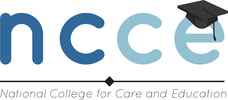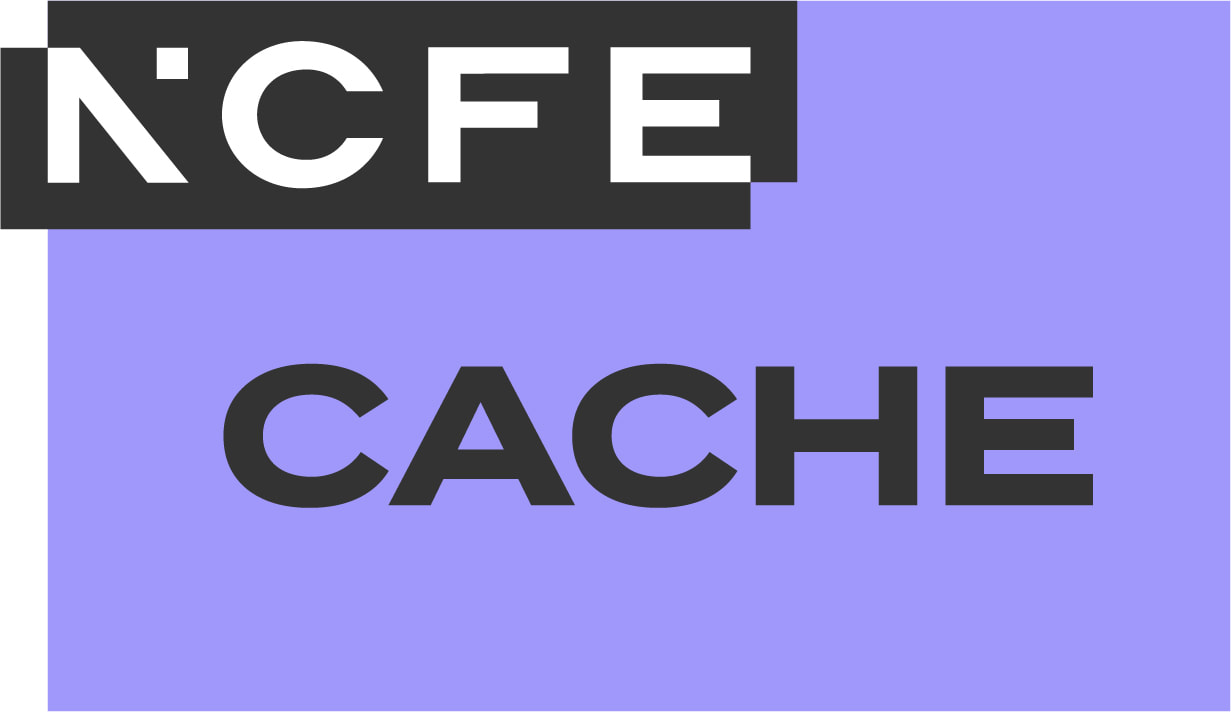- Play Work and Playful Pedagogies
- >
- Level 3 Diploma in Hospital Play, Health, and Wellbeing (CACHE Accredited)
Level 3 Diploma in Hospital Play, Health, and Wellbeing (CACHE Accredited)
SKU:
£680.00
75.56
680
£75.56 - £680.00
Unavailable
per item
NCCE are delighted to launch the NCFE CACHE Accredited Level 3 Diploma in Hospital Play, Health, and Wellbeing
This qualification is a comprehensive programme designed for those aspiring to enrich the lives of children in hospital settings through therapeutic play. This qualification is crafted in response to the demand from students in our Early Years, Childcare, and Therapeutic Play Techniques programmes, targeting practitioners who seek to augment their skills in hospital play, focusing specifically on its therapeutic aspects in aiding children’s recovery and overall health and well-being.
The diploma covers the following key topics:
The programme offers flexibility, with two optional units tailored to different learning needs and circumstances. One is designed for those without access to a healthcare placement, while the other involves a supervised placement, offering practical experience.
Targeted at practitioners and professionals eager to work in a support-based role focusing on hospital play, the course does not require formal entry qualifications. However, prior level 3 study or experience working with children will be advantageous, especially for those undertaking the Supervised Practice unit.
Participants will have access to dedicated tutors and assessors, online resources, one-on-one sessions, and group webinars. Assessment involves creating knowledge-based evidence through various creative tasks and practical evidence from observations and work products. All customised qualifications undergo rigorous internal quality assurance, ensuring high standards.
This diploma offers an exceptional opportunity to delve into the field of hospital play, equipping learners with the knowledge to make a meaningful difference in the lives of children undergoing medical treatment.
This course affords the opportunity for childcare practitioners to update their knowledge in order to support children in hospital settings and learners may seek to apply for roles as a play assistant in a hospital. Please note, the Level 3 Diploma in Hospital Play, Health, and Wellbeing is a development qualification to support further learning and open up opportunities to use knowledge, skills, and experiences in play and childcare in a setting that supports children with health conditions.
Syllabus:
Unit 1: Foundations of Hospital Play:
This unit introduces the history and theoretical underpinnings of play in healthcare settings, focusing on its evolution and recognition as an essential element of paediatric care. Learners explore how play has been integrated into healthcare models over time and its role in the psychological and physical recovery processes of children undergoing medical treatment. The unit evaluates the effectiveness of play in improving health outcomes in paediatric cases, providing a foundational understanding of its importance in a healthcare context.
Unit 2: Child Health and Development:
Focusing on child health and development, this unit delves into the primary developmental milestones in early childhood and how these stages impact a child's healthcare needs. It addresses the psychological effects of hospitalisation on children, the implications for their development, and strategies to support developmental progress during hospital stays. The unit provides a comprehensive overview of the intersection between child health, development, and the hospital environment.
Unit 3: Health and Safety in the Hospital Play Environment:
In this unit, learners gain an understanding of the specific health and safety protocols required in hospital play areas, including infection control and identifying common hazards. The importance of conducting risk assessments for new play activities and implementing safety measures is highlighted, along with strategies for modifying play activities in response to identified safety hazards. The unit ensures that learners can maintain a safe and secure play environment within the hospital setting.
Unit 4: Therapeutic Play and Wellbeing:
Learners in this unit study various play therapy methods, differentiating between directive and non-directive approaches, and adapting these to suit children with diverse emotional and health needs. The unit emphasises the relationship between play, health, and emotional wellbeing, exploring the benefits of therapeutic play in both mental and physical health outcomes and its integration into overall paediatric healthcare plans.
Unit 5: Effective Communication in Healthcare:
This unit focuses on the critical aspect of communication in healthcare settings, especially with children and their families. Learners will understand how to adapt communication approaches for different age groups, the significance of non-verbal communication, and effective strategies for various age groups. Communication challenges with families of hospitalised children are also explored, along with culturally sensitive support strategies.
Unit 6: Inclusive Play and Diversity:
Addressing the crucial aspects of inclusivity and diversity, this unit explores how cultural beliefs and backgrounds can impact a child's reception to hospital play. Learners analyse strategies for incorporating diverse cultural backgrounds and adapting play activities for children with different abilities or special needs. The unit underscores the importance of inclusive play strategies to enhance the effectiveness of play in a hospital setting.
Unit 7: Preparing for Professional Practice (optional)
In this unit, learners are prepared for professional practice in hospital play services. It covers areas for career development, the creation of personal professional development plans, and the importance of ongoing education and training. Ethical considerations specific to paediatric play and healthcare are also discussed, including issues around confidentiality, informed consent, and cultural sensitivity.
Unit 8: Supervised Practice (optional)
Offering practical experience, this unit allows learners to engage in supervised hospital plans. It focuses on facilitating play activities, collaborating with healthcare professionals, and effective communication with children and families. The unit also emphasises reflective practice, including gathering feedback, creating development plans, and demonstrating improvements in practice based on feedback. This unit requires work experience in an appropriate clinical setting with children or young people.
_______________________________
Our qualification has been developed to meet the specific needs of our learners and has been accredited by NCFE demonstrating the quality and rigour.
NCFE is an awarding organisation recognised by the qualification regulators for England (Ofqual), Wales (Qualifications Wales) and Northern Ireland (CCEA Regulation). This is an unregulated qualification and is not a nationally recognised qualification. This qualification has been accredited as a Customised Qualification and we have benchmarked the qualification’s learning outcomes and assessment criteria at Level (using a national framework’s level descriptors) to allow you to demonstrate the difficulty and depth of study. On completion of the Customised Qualification, learners will receive a certificate of achievement. The qualification is not awarded by or certified by HPSET. The certificate is evidence of the knowledge and skills gained by completing the qualification. This qualification has been accredited by NCFE under the Customised Qualification and the certificate of achievement will be issued directly by NCFE.
This qualification is a comprehensive programme designed for those aspiring to enrich the lives of children in hospital settings through therapeutic play. This qualification is crafted in response to the demand from students in our Early Years, Childcare, and Therapeutic Play Techniques programmes, targeting practitioners who seek to augment their skills in hospital play, focusing specifically on its therapeutic aspects in aiding children’s recovery and overall health and well-being.
The diploma covers the following key topics:
- Hospital Play: We explore the role of play within hospital settings, underscoring its significance in the healing and coping processes for children receiving medical care.
- Child Health: This element of the qualification enhances understanding of child development, the impact of illness on children, and how play supports their physical and mental health.
- Children’s Wellbeing: Complementing the above, we research a holistic approach to care, emphasising the physical, mental, and emotional wellbeing of children in hospital or clinical environments.
The programme offers flexibility, with two optional units tailored to different learning needs and circumstances. One is designed for those without access to a healthcare placement, while the other involves a supervised placement, offering practical experience.
Targeted at practitioners and professionals eager to work in a support-based role focusing on hospital play, the course does not require formal entry qualifications. However, prior level 3 study or experience working with children will be advantageous, especially for those undertaking the Supervised Practice unit.
Participants will have access to dedicated tutors and assessors, online resources, one-on-one sessions, and group webinars. Assessment involves creating knowledge-based evidence through various creative tasks and practical evidence from observations and work products. All customised qualifications undergo rigorous internal quality assurance, ensuring high standards.
This diploma offers an exceptional opportunity to delve into the field of hospital play, equipping learners with the knowledge to make a meaningful difference in the lives of children undergoing medical treatment.
This course affords the opportunity for childcare practitioners to update their knowledge in order to support children in hospital settings and learners may seek to apply for roles as a play assistant in a hospital. Please note, the Level 3 Diploma in Hospital Play, Health, and Wellbeing is a development qualification to support further learning and open up opportunities to use knowledge, skills, and experiences in play and childcare in a setting that supports children with health conditions.
Syllabus:
Unit 1: Foundations of Hospital Play:
This unit introduces the history and theoretical underpinnings of play in healthcare settings, focusing on its evolution and recognition as an essential element of paediatric care. Learners explore how play has been integrated into healthcare models over time and its role in the psychological and physical recovery processes of children undergoing medical treatment. The unit evaluates the effectiveness of play in improving health outcomes in paediatric cases, providing a foundational understanding of its importance in a healthcare context.
Unit 2: Child Health and Development:
Focusing on child health and development, this unit delves into the primary developmental milestones in early childhood and how these stages impact a child's healthcare needs. It addresses the psychological effects of hospitalisation on children, the implications for their development, and strategies to support developmental progress during hospital stays. The unit provides a comprehensive overview of the intersection between child health, development, and the hospital environment.
Unit 3: Health and Safety in the Hospital Play Environment:
In this unit, learners gain an understanding of the specific health and safety protocols required in hospital play areas, including infection control and identifying common hazards. The importance of conducting risk assessments for new play activities and implementing safety measures is highlighted, along with strategies for modifying play activities in response to identified safety hazards. The unit ensures that learners can maintain a safe and secure play environment within the hospital setting.
Unit 4: Therapeutic Play and Wellbeing:
Learners in this unit study various play therapy methods, differentiating between directive and non-directive approaches, and adapting these to suit children with diverse emotional and health needs. The unit emphasises the relationship between play, health, and emotional wellbeing, exploring the benefits of therapeutic play in both mental and physical health outcomes and its integration into overall paediatric healthcare plans.
Unit 5: Effective Communication in Healthcare:
This unit focuses on the critical aspect of communication in healthcare settings, especially with children and their families. Learners will understand how to adapt communication approaches for different age groups, the significance of non-verbal communication, and effective strategies for various age groups. Communication challenges with families of hospitalised children are also explored, along with culturally sensitive support strategies.
Unit 6: Inclusive Play and Diversity:
Addressing the crucial aspects of inclusivity and diversity, this unit explores how cultural beliefs and backgrounds can impact a child's reception to hospital play. Learners analyse strategies for incorporating diverse cultural backgrounds and adapting play activities for children with different abilities or special needs. The unit underscores the importance of inclusive play strategies to enhance the effectiveness of play in a hospital setting.
Unit 7: Preparing for Professional Practice (optional)
In this unit, learners are prepared for professional practice in hospital play services. It covers areas for career development, the creation of personal professional development plans, and the importance of ongoing education and training. Ethical considerations specific to paediatric play and healthcare are also discussed, including issues around confidentiality, informed consent, and cultural sensitivity.
Unit 8: Supervised Practice (optional)
Offering practical experience, this unit allows learners to engage in supervised hospital plans. It focuses on facilitating play activities, collaborating with healthcare professionals, and effective communication with children and families. The unit also emphasises reflective practice, including gathering feedback, creating development plans, and demonstrating improvements in practice based on feedback. This unit requires work experience in an appropriate clinical setting with children or young people.
_______________________________
Our qualification has been developed to meet the specific needs of our learners and has been accredited by NCFE demonstrating the quality and rigour.
NCFE is an awarding organisation recognised by the qualification regulators for England (Ofqual), Wales (Qualifications Wales) and Northern Ireland (CCEA Regulation). This is an unregulated qualification and is not a nationally recognised qualification. This qualification has been accredited as a Customised Qualification and we have benchmarked the qualification’s learning outcomes and assessment criteria at Level (using a national framework’s level descriptors) to allow you to demonstrate the difficulty and depth of study. On completion of the Customised Qualification, learners will receive a certificate of achievement. The qualification is not awarded by or certified by HPSET. The certificate is evidence of the knowledge and skills gained by completing the qualification. This qualification has been accredited by NCFE under the Customised Qualification and the certificate of achievement will be issued directly by NCFE.







